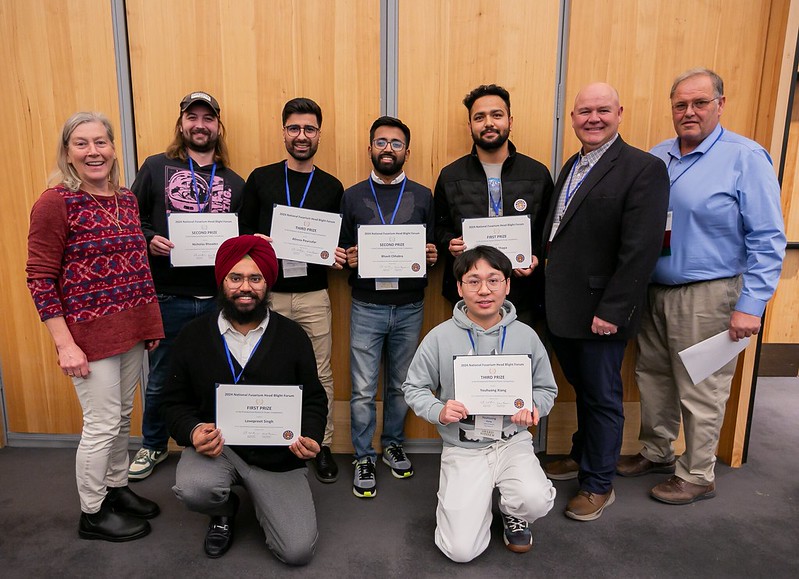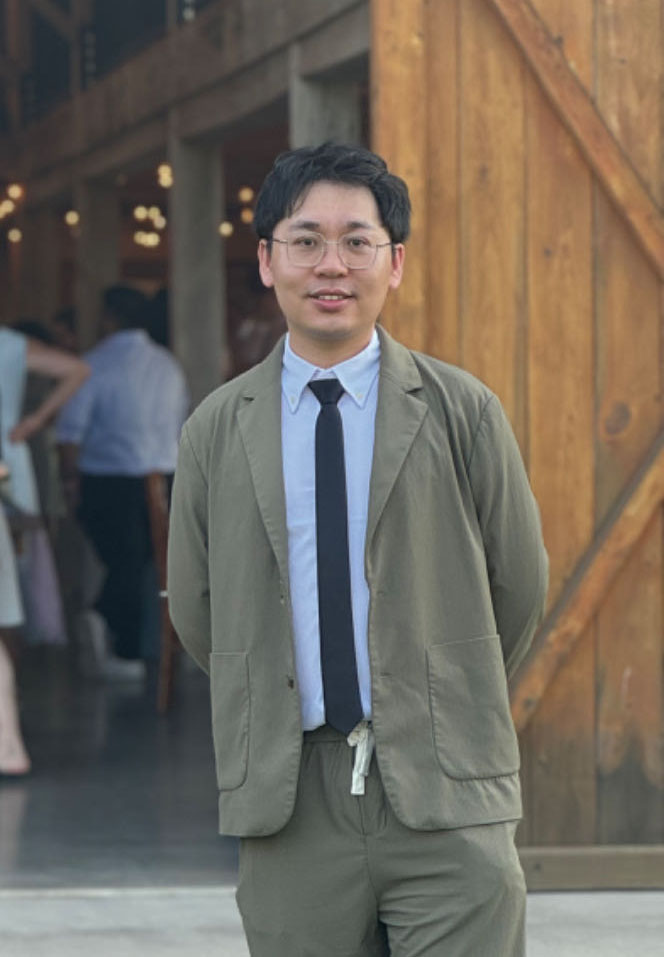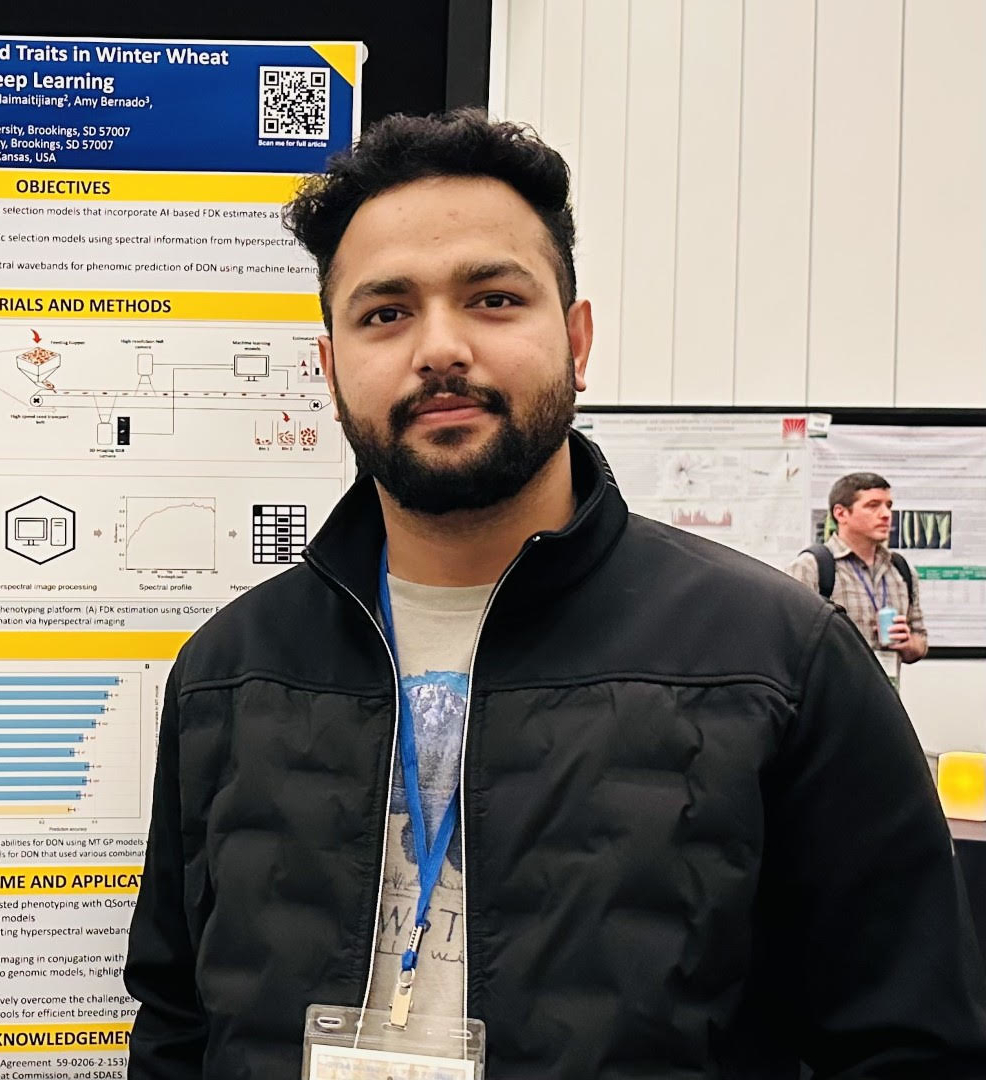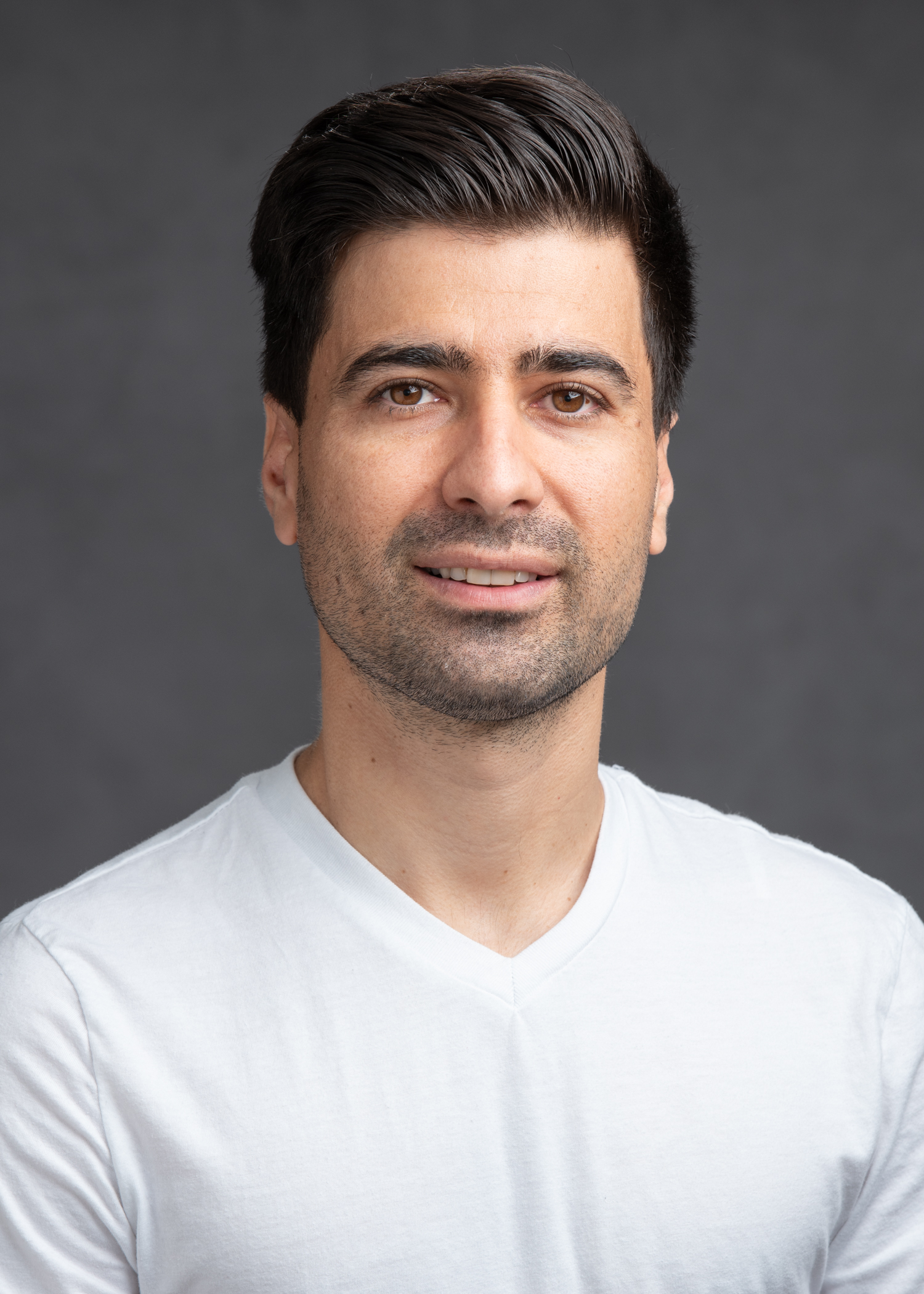Featured Researcher Bio - NFHB Forum Poster Winner January 2025

2024 National Fusarium Head Blight Forum Poster Competition Winners
The 2024 NFHB Forum Poster Competition featured 19 posters presented by 13 graduate students and 6 post-doctoral researchers. Winners in both categories (Graduate Student and Post-Doctoral Researcher) received cash prizes generously sponsored by the North American Millers’ Association (NAMA). Evaluations consisted of two rounds where 22 judges evaluated the posters for content and professionalism. A huge thank you to all the judges and NAMA for making this year’s event possible. Here are highlights for each of the 2024 Poster Competition awardees:
Post-Doctoral Researcher Category

1st Place: Lovepreet Singh, University of Minnesota, Pathogen Biology and Genetics, Poster #406
“Rapid Detection of Fusarium graminearum Chemotypes Using a Single-tube Multiplex High-Resolution Melting (HRM) Assay”
Lovepreet is a post-doctoral researcher at the University of Minnesota and USDA-ARS Cereal Disease Lab, St. Paul, MN. He grew up on a small farm in the breadbasket of India, Punjab. Lovepreet’s farming background fuels his motivation to develop sustainable plant disease management strategies to ensure food security in an environmentally responsible way. He earned his PhD under the guidance of Dr. Nidhi Rawat at the University of Maryland. His PhD research focused on a multipronged approach for FHB management in wheat including genetic mapping for native disease resistance, fungicide efficacy studies for Miravis® Ace, and studies to understand the mode of action of the wheat PFT gene (one of the underlying genes of the Fhb1 QTL). To continue his passion to unravel Fusarium-plant host interactions, Lovepreet joined Dr. Mitch Elmore’s lab at the USDA-ARS Cereal Disease Lab. He is using multi-omics (including transcriptomics, proteomics, and phospho-proteomics) approaches to study Fusarium graminearum and barley interactions with the goals of developing high-resolution gene regulatory networks and identifying susceptibility factors in the FHB-barley pathosystem. Additionally, he is interested in monitoring the FHB pathogen population dynamics and has developed high-throughput molecular diagnostics tools for detecting chemotypes of Fusarium gramineaum. When not conducting research, Lovepreet likes to spend time in nature with his family and play with his kids.

2nd Place: Nicholas Rhoades, USDA-ARS, Pathogen Biology and Genetics, Poster #405
“Fusarium graminearum Effector FgRGAE is Critical for Fungal Initial Infection in Wheat and Barley”
Nick is a post-doctoral researcher at the USDA-ARS Mycotoxin Prevention and Applied Microbiology Unit in Peoria, IL. He earned a M.S. in Biotechnology and a PhD in Molecular Genetics from Illinois State University under the supervision of Dr. Tom Hammond. His PhD research investigated selfish genetic elements called Spore Killers in Ascomycete fungi, as well as investigating the biophysical properties of meiotic chromosomal pairing in Neurospora crassa. Nick’s post-doctoral research is focused on identifying and characterizing effector genes in the Fusarium graminearum genome that are involved in establishing infection of cereal grains, with the goal of detecting suitable gene targets for Fusarium Head Blight disease control. Additionally, he is working to develop the endophytic fungi, Sarocladium zeae, as a vertically-transmitted biocontrol strain in wheat to help control Fusarium Head Blight. When not conducting research or writing manuscripts, Nick likes to play drums in his band, The Recombinants, as well as working part-time as an audio engineer and guitar repair technician at his home studio and workshop.

3rd Place: Youhuang Xiang, Indiana University, Gene Discovery and Engineering Resistance, Poster #316
“A Fusarium graminearum Effector FgTPP1 Interacts with Stromal Chaperone HSP70 and Suppresses Plant Immunity”
Youhuang is a postdoctoral research associate in the laboratory of Dr. Roger Innes in the Department of Biology at Indiana University Bloomington. He grew up in a small town in China, and his childhood experience in the family vegetable garden provoked his interest to study plant science. Youhuang obtained his PhD degree in plant genetics from Chinese Academy of Science, China. His current research engages a range of issues in crop genetics and plant-microbe interaction. A major focus is to develop disease-resistant wheat using genome editing approaches based on a decoy engineering platform. When not working in the lab, he enjoys trying new recipes to make a meal or exploring the unknown on a journey.
Graduate Student Category

1st Place: Subash Thapa, South Dakota State University, Variety Development and Host Resistance, Poster #522
“Enhancing Predictive Accuracy for Fusarium Head Blight-related Traits in Winter Wheat through Integrating Genomics, Phenomics, and Deep Learning”
Subash is from Nepal, a small yet beautiful South Asian country. He is pursuing his PhD in the Department of Agronomy, Horticulture, and Plant Science at South Dakota State University under the guidance of Dr. Sunish Sehgal. His research integrates genomic and phenomic approaches to predict traits associated with Fusarium Head Blight (FHB) in winter wheat. He is also working with QSorter, an advanced robot for single kernel analysis and sorting, to improve the accuracy and efficiency of FDK estimation in wheat samples. In addition to FHB, he is also investigating bacterial and fungal diseases, particularly identifying resistance loci. Outside of his research, Subash stays active by playing badminton and table tennis at the Wellness Center, and enjoys driving, often visiting his brother in Fargo during long weekends.
2nd Place: Bhavit Chhabra, University of Maryland, Gene Discovery and Engineering Resistance, Poster #302
“Discovery and Mapping of FHB-resistant Mutations in a Susceptible Wheat Variety ‘Jagger’”
Bhavit is originally from Punjab, India, and is currently pursuing his Ph.D. at the University of Maryland in the field of Plant Sciences. His research focuses on exploring novel susceptibility factors for Wheat-Fusarium graminearum pathosystem. He is also working on testing the field efficacies of newly released fungicides. In his spare time, he loves to travel, explore the unexplored, and hike.

3rd Place: Alireza Poursafar, North Dakota State University, Gene Discovery and Engineering Resistance, Poster #313
“Identification and Characterization of Fusarium Head Blight Susceptibility Genes in Durum Wheat”
Alireza is originally from Urmia, a city in northwest of Iran. He earned his bachelor’s degree in Crop Protection from Urmia University and his master’s degree in Plant Pathology from the University of Tehran. Currently, he is pursuing a PhD in Plant Pathology at North Dakota State University under the supervision of Dr. Shaobin Zhong. His research focuses on the molecular mapping of FHB resistance, the identification of FHB susceptibility genes, and genome editing to improve FHB resistance in durum wheat. He is also investigating a Fusarium graminearum field population to characterize its genetic structure, chemotype diversity, and pathogenicity. Outside of his research projects, Alireza enjoys playing soccer, volleyball, and guitar as well as watching movies.
Congratulations to all the 2024 NFHB Forum Poster Competition awardees on their accomplishments. The USWBSI wishes each of them the best in all their future scientific endeavors. Additionally, the USWBSI would like to extend a thank you and congratulations to all the poster authors highlighting their research and providing engaging Poster Sessions. The 2024 National FHB Forum Abstracts for all of the posters and presentations are available for viewing.
(Please Note: The 2024 NFHB Forum Virtual Poster Room will remain open through the end of January. Make sure to check out these and all the posters before the Virtual Poster Room closes.)
To learn more about others in the FHB community, check out all the previous USWBSI Featured Researchers/Advocates.
